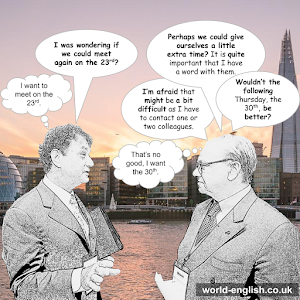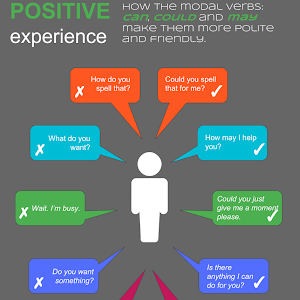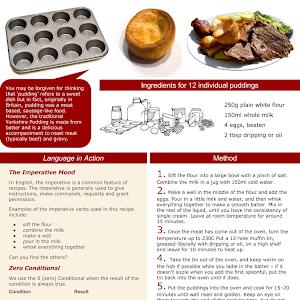
Sometimes in business and in life, we have to say quite negative things to colleagues and clients or even disagree with them - it's simply unavoidable. How do we keep the relationship open?
By using diplomatic English and tact, we can be persuasive or assertive while maintaining good relationships.
The phrases in bold highlight some of the language strategies that are used to make you sound more dilpomatic.

First impressions count when dealing with customers and it's important to be polite.
In this lesson, you will:
I hope you enjoy this lesson and that it helps make your communication more effective.
Confused about the English tenses? Then don't watch this!
The world population now stands at approximately 7.2 billion. Of those 7.2 billion people, approximately 1.5 billion people are able to speak English at a useful communicative level - that’s just over 20%, or one in five, of the world’s population.
But is it really necessary to have a single world language? The simple answer is yes. As we become more globalised, we need a common language. Imagine the air traffic controllers trying to manage the skies with all of the pilots speaking different languages. The results would be catastrophic. Having a single working language is also hugely important for international companies, where colleagues are in different countries and communication takes place across borders. The reasons are numerous.
So the lucky few, relatively speaking, can sit back and relax, right? Wrong. The number of native English speakers (430m) is much smaller than the number of non-native speakers and so we should all learn to communicate clearly in an international environment - in a way that helps us all understand.
There are many ways that a native speaker can adapt their communication in English so that they can be understood by their global partners. Here are just a few:
Try to separate your words a little more - when we speak English we tend to blend words together in a sentence, for example: “I told you to keep it”, sounds more like “uhtol dew t key pit.” to someone who speaks English as a second language, this can sound like a completely different language.
Avoid using idioms, phrases where the meaning is not clear from the words alone, for example, ‘jump the gun’, ‘out of the blue’ or ‘let’s wrap the meeting up’ as there is very little chance of it being understood because even if translated word-for-word into other languages, they usually make little or no sense.
Avoid using negative questions. English is one of very few languages around the world which requires a negative answer to a negatively phrased question. If you said to a non-native speaker, “You don’t mind if I open the window, do you?”, you would probably receive “Yes.” as a response.
Avoid slang and cultural references.
Remember, it’s even more difficult to communicate over the phone because there is no body language to help.
And finally, don’t raise your voice - it’s not a hearing problem, it’s a language problem.
So in answer to the original question, World English belongs to everyone who speaks it and so it’s everyone’s responsibility to speak it in a way that can be understood around the world, including native speakers.

Sample the Great British Yorkshire Pudding while improving your English.
Voted more iconic than Mary Shelley’s Dracula and the Arctic Monkeys, Yorkshire Pudding is a traditional and much loved dish in the UK and beyond.
In this lesson, you will:
Enjoy the lesson and the Yorkshire Puddings… and don’t forget the gravy!